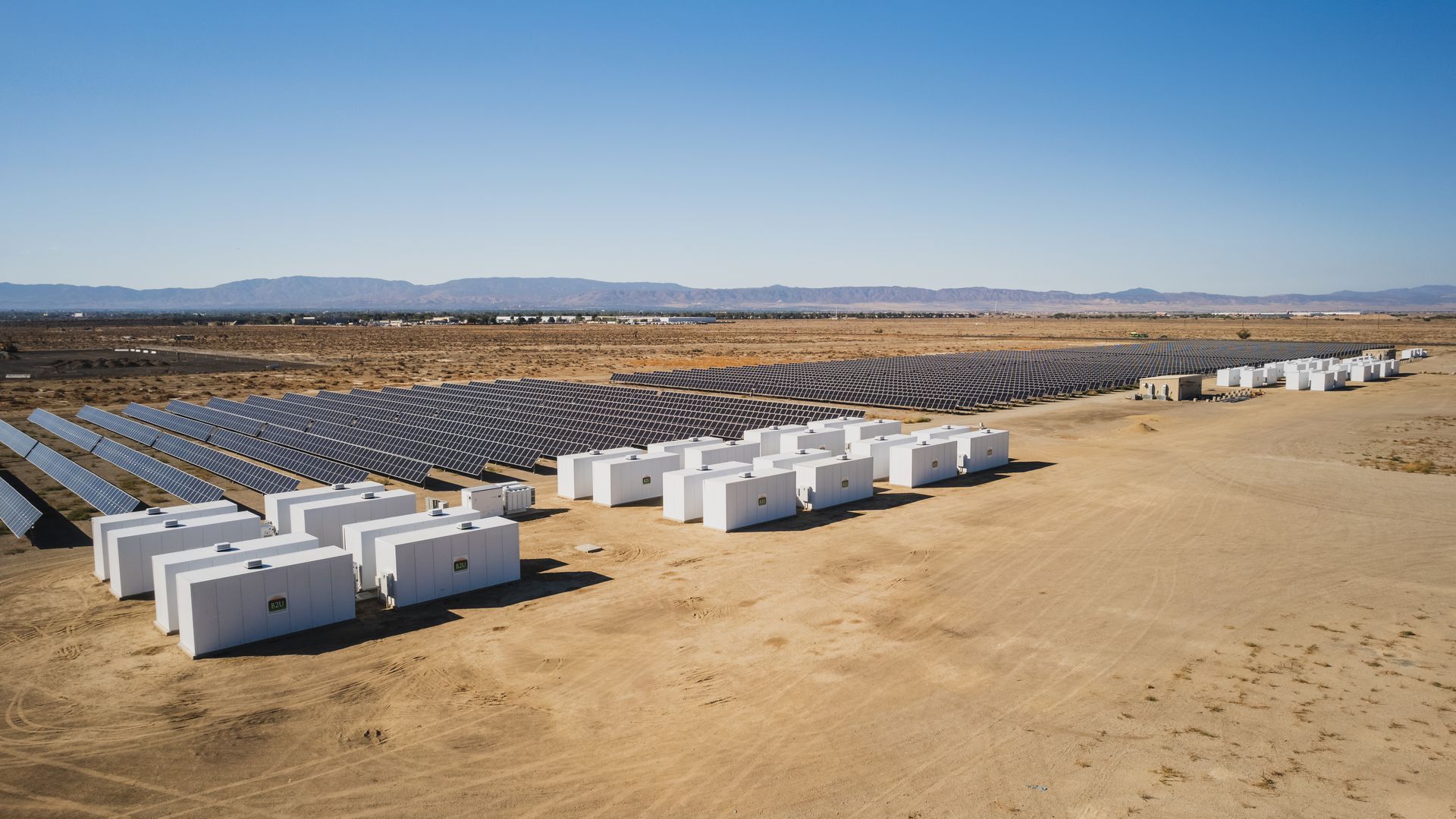| A California energy startup has turned more than a thousand electric vehicle (EV) batteries into solar power storage capsules, Alex Fitzpatrick reports, in an intriguing effort to prove out an alternative to traditional recycling. Why it matters: Electric cars are cleaner than their gas-guzzling counterparts, but their batteries extract a significant ecological toll in the form of mining and manufacturing. - Repurposing old EV batteries can maximize their lifetime use, thus squeezing more benefit out of each battery made.
- Energy storage, meanwhile, can help alleviate solar energy's intermittency problem — meaning, batteries can store solar power to be used when the sun isn't shining.
Driving the news: B2U Storage Solutions' Sierra facility has reached 25MWh of solar storage capacity using second-life EV batteries from Honda and Nissan, the company announced Tuesday. - During the day, the Lancaster, Calif. facility's batteries are charged up by nearby solar panels. The company then sells power back to the grid at night, when the rates for solar power are higher.
- The facility generated more than $1 million in revenue last year, the company says.
The intrigue: B2U's big breakthrough is a proprietary plug-and-play technology that uses battery packs' existing management systems. - That, says co-founder and CEO Freeman Hall, "virtually eliminates the repurposing costs" and makes the company's tech "a very pragmatic operation as we go forward."
What they're saying: Repurposed EV batteries work well for solar storage, in part because the job is much less stressful compared to powering a car, says Hall. - "The current we're applying isn't even a tenth of what they're rated for, and we don't push them all the way to the top end or the bottom end in terms of their rated voltage levels."
- That should translate into a long second lifespan.
Reality check: 25MWh isn't huge — the world's biggest solar storage facilities advertise hundreds of MWh. Yes, but: The point of B2U's Sierra facility is simply to demonstrate that second-life EV batteries can be used as solar storage at worthwhile scale. - "As we have that track record laid out over time, get that cycle history, get that dataset, demonstrate effectiveness, then we're in a better position to scale as the number of batteries going forward expands," Hall says.
Meanwhile: Battery recycling firms, such as Redwood Materials and Lithion, are also gaining steam. What we're watching: Whether other use cases crop up. - Car manufacturers may explore similar technology to help decarbonize their production lines, while airports and airlines are also interested in small-scale onsite energy storage, as Joann Muller has reported.
What's next: As early EV owners upgrade to newer models, the available supply of used batteries is expected to skyrocket — and many could be turned into alternative energy storage solutions. Share this story. | 







No comments:
Post a Comment